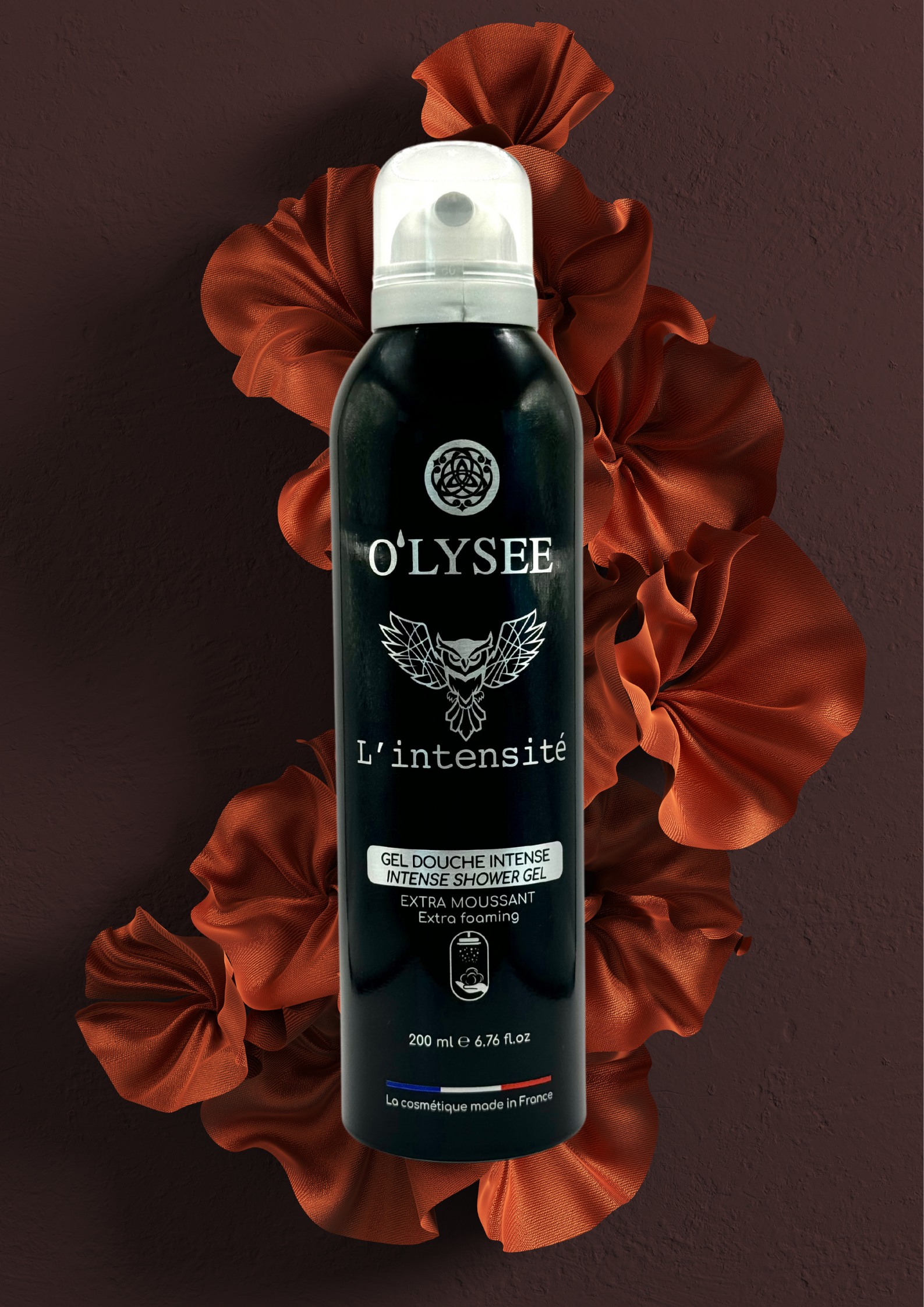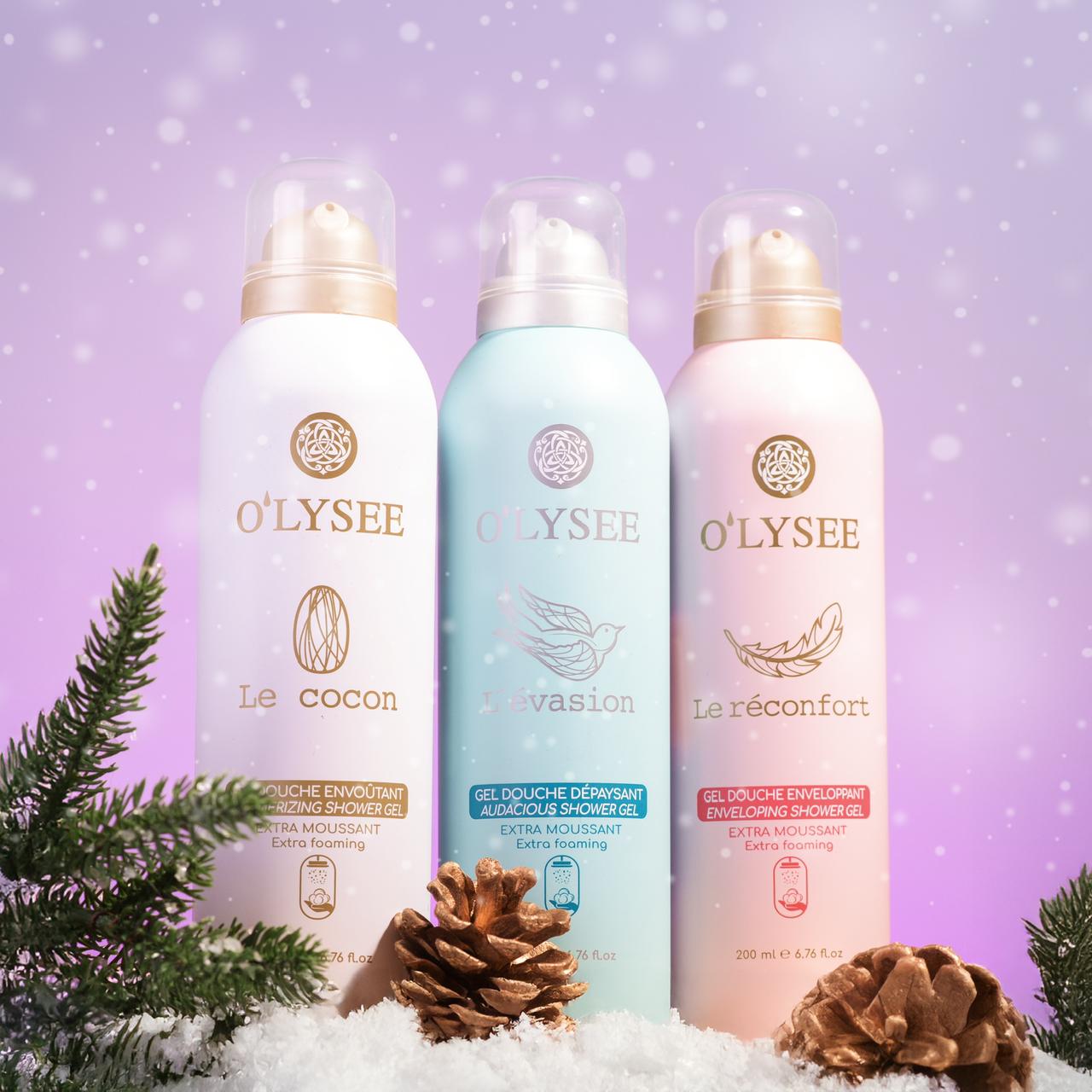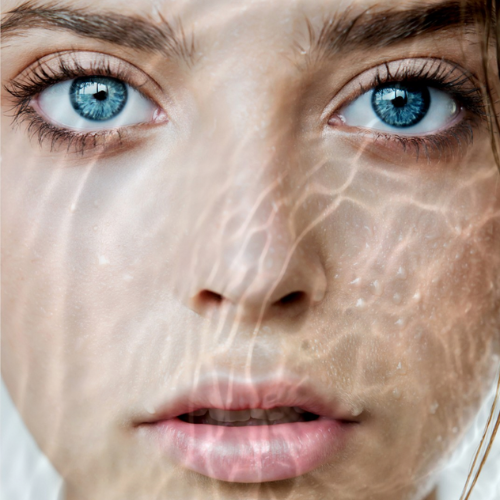
The O'lysée brand is convinced that hydration is an essential element for radiant skin.
This is the secret to beautiful skin. If you want to know more about the benefits of hydration, you've come to the right place!
On this page we explain how hydration works, why it is so important and how you can ensure your skin is well hydrated.
The epidermis 💧
The term "visible layer of the skin" refers to the epidermis, which is the part of the skin that can be touched and on which cosmetic products act. The surface of the epidermis is formed by a layer called the stratum corneum, which is similar to a brick wall.
Keratinocyte cells represent the bricks of this wall and are composed of water in the center, surrounded by a wall of lipids. This wall has the function of keeping the water inside the cells. The intercellular cement corresponds to the cement used to build the brick wall and is mainly composed of lipids such as fatty acids and ceramides.
The health and balance of the skin depends on an optimal harmony between the degree of lipidation, which is linked to the secretion of sebum, and the degree of hydration, that is to say the quantity of water present in the horny layer.
The dermis ⭐️
Located below the epidermis, the dermis is the thickest part of the skin and contains a significant amount of collagen. Its role is crucial because it gives the skin its strength and elasticity. In addition, it acts as a water reservoir for the skin, because it contains "non-mobilizable" water that is firmly attached to the molecules of the dermis, such as hyaluronic acid, and cannot evaporate.
When properly protected by the hydrolipidic film, it is the epidermis that prevents water from the dermis from evaporating. In short, the dermis is essential for maintaining skin hydration and preserving its strong and elastic appearance.
The hypodermis 🌼
The hypodermis is the deepest layer of the skin. It is an important energy reservoir for the body because it is where fats are stored. In addition to its energetic role, the hypodermis plays a crucial role in thermal regulation by maintaining body temperature at 37°C.
In fact, this layer of subcutaneous fat insulates the body by limiting heat loss and preserving the heat produced by metabolism. In summary, the hypodermis is an essential layer for the body's thermal regulation and the storage of energy in the form of fat.
The hydrolipidic film 💧
The hydrolipidic film is a thin protective film located on the surface of the skin, which is composed of 95% fat, including dead skin cells, sweat, water, keratin and sebum. This natural barrier plays a crucial role in maintaining skin hydration by limiting water evaporation.
The hydrolipidic film also acts as a protective barrier, protecting us from external aggressions such as wind, cold, pollution, bacteria, etc. In short, its role is essential to maintain good hydration of the skin and protect it from external aggressions.
The term "visible layer of the skin" refers to the epidermis, which is the part of the skin that can be touched and on which cosmetic products act. The surface of the epidermis is formed by a layer called the stratum corneum, which is similar to a brick wall.
Keratinocyte cells represent the bricks of this wall and are composed of water in the center, surrounded by a wall of lipids. This wall has the function of keeping the water inside the cells. The intercellular cement corresponds to the cement used to build the brick wall and is mainly composed of lipids such as fatty acids and ceramides.
The health and balance of the skin depends on an optimal harmony between the degree of lipidation, which is linked to the secretion of sebum, and the degree of hydration, that is to say the quantity of water present in the horny layer.
Located below the epidermis, the dermis is the thickest part of the skin and contains a significant amount of collagen. Its role is crucial because it gives the skin its strength and elasticity. In addition, it acts as a water reservoir for the skin, because it contains "non-mobilizable" water that is firmly attached to the molecules of the dermis, such as hyaluronic acid, and cannot evaporate.
When properly protected by the hydrolipidic film, it is the epidermis that prevents water from the dermis from evaporating. In short, the dermis is essential for maintaining skin hydration and preserving its strong and elastic appearance.
The hypodermis is the deepest layer of the skin. It is an important energy reservoir for the body because it is where fats are stored. In addition to its energetic role, the hypodermis plays a crucial role in thermal regulation by maintaining body temperature at 37°C.
In fact, this layer of subcutaneous fat insulates the body by limiting heat loss and preserving the heat produced by metabolism. In summary, the hypodermis is an essential layer for the body's thermal regulation and the storage of energy in the form of fat.
The hydrolipidic film is a thin protective film located on the surface of the skin, which is composed of 95% fat, including dead skin cells, sweat, water, keratin and sebum. This natural barrier plays a crucial role in maintaining skin hydration by limiting water evaporation.
The hydrolipidic film also acts as a protective barrier, protecting us from external aggressions such as wind, cold, pollution, bacteria, etc. In short, its role is essential to maintain good hydration of the skin and protect it from external aggressions.

Cleanse, Moisturize, Protect
The health of our skin is affected by a lack of hydration which can cause various problems such as tightness, a dull and tired complexion, a rougher texture as well as the appearance of wrinkles and crow's feet. In case of prolonged dehydration, more serious skin conditions such as ichthyosis or eczema can occur. Thus, it is essential to maintain good hydration of the skin to preserve its beauty and health.
Well-hydrated skin:

It's a healthier look!
Well-hydrated skin is more supple and smooth, giving it a more youthful and radiant appearance.
Protection against external aggressions
Well-hydrated skin is more resistant to damage from UV rays, pollution and other external aggressions.
A reduction in the signs of aging
Dry skin tends to accentuate fine lines and wrinkles, while well-hydrated skin has a smoother, more youthful appearance.
A decrease in acne
Well-hydrated skin can help prevent acne breakouts because it helps maintain a natural balance of sebum production.
Better barrier function: Well-hydrated skin is better protected against moisture loss and external irritants.
Faster healing
Well-hydrated skin has a faster healing ability, which can help reduce the appearance of scars and blemishes.
An improvement in skin texture
Well-hydrated skin can help reduce roughness and dryness, resulting in a softer, smoother texture.

How to properly hydrate your skin?
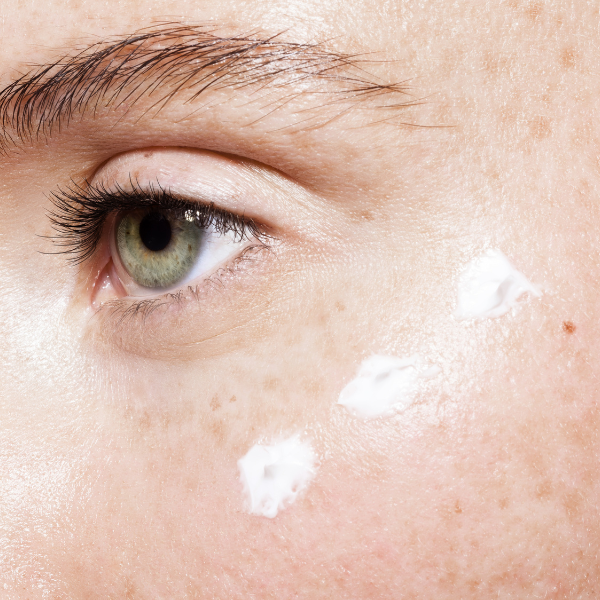

Drinking enough water orally will allow deep hydration at the dermis level. You must therefore drink at least 1.5 liters of water throughout the day! This hydration will compensate for the insensible loss of water.


Cosmetic care has the ability to hydrate the epidermis and the stratum corneum of the skin. However, this is not done by providing water, as one might think. Rather, moisturizing care has the function of strengthening the stratum corneum of the skin and restoring the hydrolipidic film to prevent dehydration.

Drinking enough water orally will allow deep hydration at the dermis level. You must therefore drink at least 1.5 liters of water throughout the day! This hydration will compensate for the insensible loss of water.

Cosmetic care has the ability to hydrate the epidermis and the stratum corneum of the skin. However, this is not done by providing water, as one might think. Rather, moisturizing care has the function of strengthening the stratum corneum of the skin and restoring the hydrolipidic film to prevent dehydration.


How does the treatment work?


Hydrophilic film formers can help limit water loss from the epidermis. Indeed, these substances create a thin, moist, insulating layer that retains water in the skin while allowing it to breathe. Vegetable glycerins and vegetable waxes are examples of hydrophilic film formers, which are particularly effective for their humectant action.
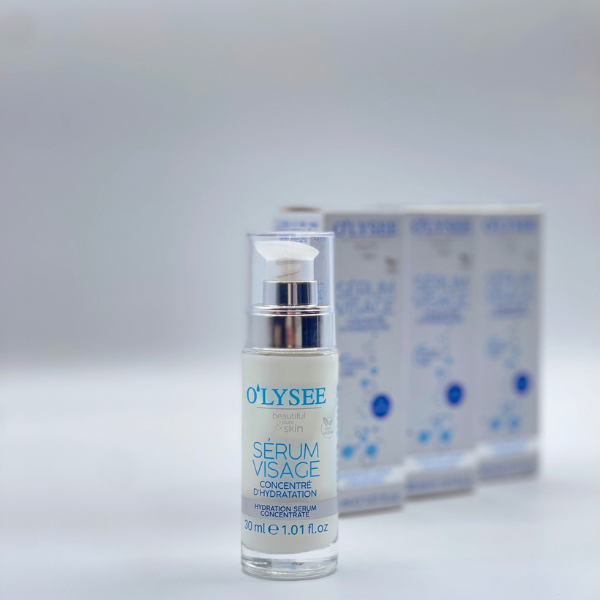

Emollients are also useful in strengthening the skin's resistance to dehydration. These active ingredients have the ability to fill the microcracks in the lipid cement that allow water to evaporate. Natural emollients, such as butter lipids and vegetable oils, are particularly effective because they penetrate deep into the skin. Shea butter, almond oil, coconut oil, jojoba oil, and sunflower oil are examples of effective natural emollients.

Hydrophilic film formers can help limit water loss from the epidermis. Indeed, these substances create a thin, moist, insulating layer that retains water in the skin while allowing it to breathe. Vegetable glycerins and vegetable waxes are examples of hydrophilic film formers, which are particularly effective for their humectant action.

Emollients are also useful in strengthening the skin's resistance to dehydration. These active ingredients have the ability to fill the microcracks in the lipid cement that allow water to evaporate. Natural emollients, such as butter lipids and vegetable oils, are particularly effective because they penetrate deep into the skin. Shea butter, almond oil, coconut oil, jojoba oil, and sunflower oil are examples of effective natural emollients.



Well, choosing your cosmetic treatments is essential!
All layers of the skin, including the oiliest, require moisturizing care because they are all exposed to water loss that is essential to compensate for. If the skin is dry, it will need emollient care rich in fat. Even when using nourishing products, if the moisturizing care is not suitable, the skin will appear dull. To obtain optimal results, it is important to use products specifically adapted to your skin type and condition.

Carry out your skin diagnosis
I startOnce you have identified your skin type and condition, you can choose the skincare that will give your skin what it needs.

